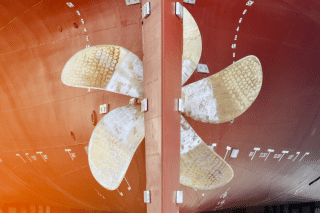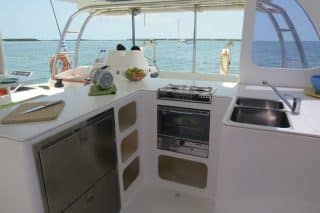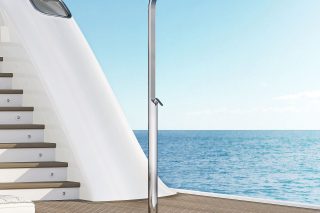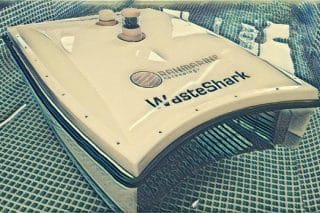For years, there has been an economic battle between large merchant ports over who will become the biggest port. Restrictions on the growth of public infrastructure and spatial planning, however, have been a major obstacle. Instead of increasing in volume, the new challenge is to become the most efficient port. Rotterdam is one of the smartest and most automated ports today.
Nowadays, robots are able to take over simple tasks from people. In the largest ports, we already see unmanned and practically fully automated container terminals with robotized cranes and automated guided vehicles. Even in shipping, unmanned and remote-controlled vessels, so-called drone ships, are beginning to be developed. For example, the Dutch company Port-Liner plans to introduce all-electric container barges for inland shipping in the Netherlands and Belgium. And theoretically, they could travel autonomously.
“Automation kills traditional jobs, but creates other jobs who require 21st century skills.”
In this context, the Port of Rotterdam, the largest in Europe, has established a knowledge institute called SmartPort for and from the port. The main objective is to develop innovative research projects that can be supported and carried out in order to make the port of Rotterdam the most sustainable, smart and competitive port in Europe by 2030. There are similar developments in ports like Hamburg and Antwerp, but on a smaller scale.
In Rotterdam, almost 45 projects in the field of efficiency, quality and sustainability are ongoing. Among them, 15 projects have already been realized. Michiel Jak, managing director at SmartPort, told NauticExpo e-magazine about two projects that are in progress.
Quay Walls of the Future
Rotterdam is an old port—80% of the quay walls are more than 50 years old and almost at the end of their technical lifespan. This involves a total of 72 km of quays that must be maintained. To ensure a future-proof infrastructure, SmartPort introduced the project “Quay walls of the future”.
With an innovative predictive maintenance system, the quay condition and aging process are constantly monitored. Thanks to calculation methods and strategically implemented sensors, the remaining lifespan can be predicted to provide better decision-making information for investments in maritime infrastructure. Maintenance can be done more efficiently and at a lower cost.
Truck Platooning
On another topic, container transportation on roads is increasing while expansion of road infrastructure is not an available option. More trucks from the port can jam up traffic on the motorways around Rotterdam. To solve this problem, “Truck platooning” has been introduced.
Semi-automated and wireless-linked trucks drive in small convoys to and from the port for smoother traffic flow, higher traffic safety, fuel saving and reductions in CO2 emissions. With this initiative, Rotterdam gives us a glimpse of the future of road freightage. By 2020, approximately 100 platoons per day will depart from the Rotterdam port area. SmartPort is investigating whether they can apply their Truck platooning concept to ships as well, both on inland waters and at sea.
Read also our previous article about Port of Rotterdam’s 3D printing field lab.
Does Automation Kill Jobs?
Step by step, robotics and computer systems are being implemented in merchant port activities. Robotized cranes are supporting people in their repetitive tasks. Measuring systems and digital matching platforms are delivering smart data to manage port activities more efficiently. Fully automated container terminals are becoming common in this sector.
Low-skilled workers are the big victims of robotization.
According to Jak, the employment in the port of Rotterdam has remained the same despite substantial automation. “Automation kills traditional jobs, but creates other jobs who require 21st century skills,” he said. “Cases of automation, as we can see with smart ports, could lead to a new industrial revolution.”
In contrast, the labor union FNV Havens states that low-skilled workers are the big victims of robotization. After the construction of a fully-automated container terminal in Rotterdam, more than 600 jobs are at stake, according to them.








